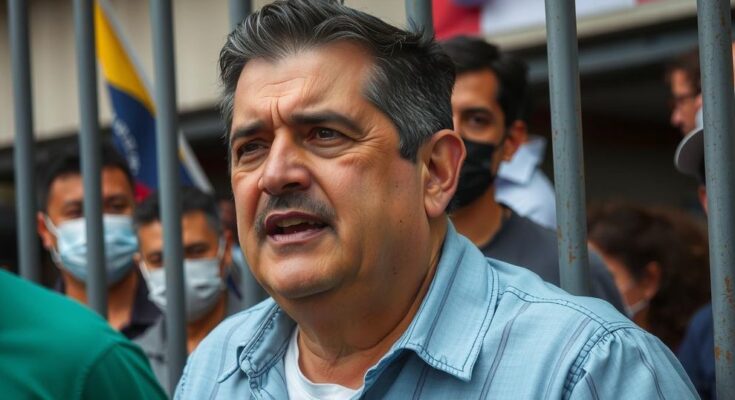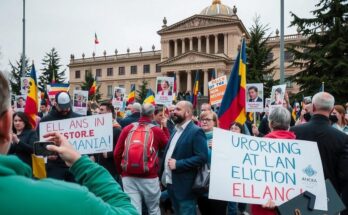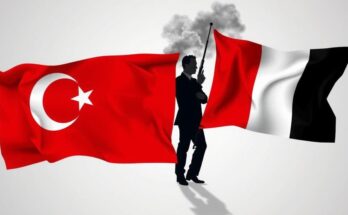Maria Corina Machado, a leader in the Venezuelan opposition, led a protest in Caracas aimed at challenging President Nicolas Maduro’s regime but faced allegations of brief detention by state security. The situation underscored ongoing tensions in Venezuela as Machado’s return to public life signified a rallying cry for democracy amidst accusations of electoral fraud and repression.
Maria Corina Machado, a prominent pro-democracy leader in Venezuela, resurfaced from hiding on Thursday to spearhead a mass protest in Caracas. Her appearance was marked by a determined challenge against the extensive police presence deployed to quell dissent. The protests were focused on President Nicolas Maduro, who is scheduled to take office for a third term following a disputed election. Machado, addressing a crowd of opposition supporters, proclaimed, “We are not afraid!” signaling a new era of resistance against Maduro’s regime. However, reports emerged of her alleged brief detention by state security after the rally, igniting widespread concern among her supporters and international observers.
After her speech, confusion ensued regarding Machado’s fate, with her team initially silent for about an hour before alleging that she had been taken by force. It was claimed that she had been knocked off the motorcycle, and amid chaotic scenes, shots were reportedly fired. The Venezuelan government dismissed these accounts, with Diosdado Cabello, the interior minister, calling them lies meant to provoke outrage. The outcry surrounding her reported detention drew attention from various international figures, including United States President-elect Donald Trump, who expressed strong support for Machado and her cause.
The protests represented mounting frustration over Maduro’s prolonged hold on power in light of an economic crisis that has prompted mass emigration and civil unrest. With Machado’s public reappearance marking her first in over four months, the rally was intended to galvanize the opposition against a government they accuse of electoral fraud and oppression. The situation remains volatile as many activists, including those who opposed Maduro in recent elections, continue to face arrests. Despite his dwindling popularity, Maduro clings to power amidst allegations of maintaining his regime through coercive means, with significant backing from countries like Russia and Cuba.
Amidst skepticism towards the democratic process in Venezuela and increasing tensions, this latest episode concerning Maria Corina Machado underscores the broader struggle for democracy and human rights in the nation. The opposition is poised to continue its fight despite the risks, with Machado vowing to maintain momentum in the face of adversity.
Venezuela has been engulfed in political turmoil, primarily driven by the opposition’s demand for democratic reforms and the ousting of President Nicolas Maduro, who has faced widespread accusations of corruption and human rights abuses. Following a contentious electoral process in July, wherein Maduro was declared the victor amidst allegations of fraud, the opposition, led by figures like Maria Corina Machado, has increasingly mobilized protests against the government. The backdrop of economic instability adds an urgent layer to the political strife, as millions flee the country due to widespread poverty and reform failures. The Venezuelan government, fortified by military and international alliances, particularly with Russia and Cuba, continues to utilize force in quelling dissent, resulting in a fraught environment for activism.
The recent events surrounding Maria Corina Machado’s protest highlight a significant moment in Venezuela’s ongoing struggle for democracy. Although her reported detention raised alarms both domestically and internationally, the opposition appears resolute in its pursuit of justice and change. With Maduro’s regime showing no signs of relinquishing power, the calls for solidarity and support for human rights in Venezuela remain crucial. The tension between oppressive governance and the pursuit of democratic freedom will likely continue to shape the nation’s future.
Original Source: www.kpvi.com




